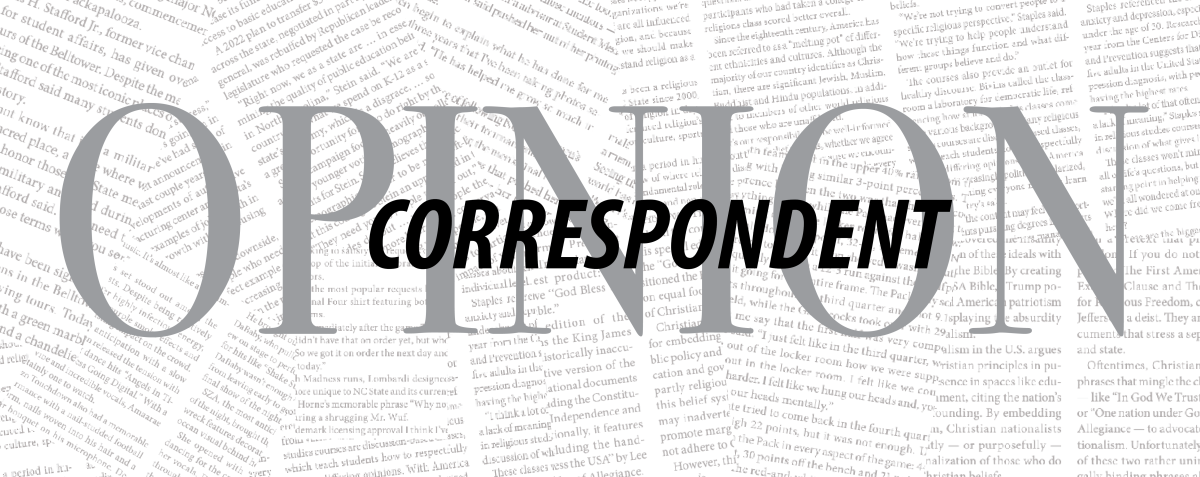In 2003, a divided U.S. Supreme Court upheld the constitutionality of affirmative action in college admissions. 20 years later, the court reversed itself, ruling that such policies were actually unconstitutional. This decision has sparked debate and numerous lawsuits against racial equity programs.
At the center of this controversy, Asians are used as political pawns by both sides. Progressives push so hard for racial equity that they silence the opinions of other people of color. In contrast, white supremacists use Asians as a battering ram to fulfill their racist agendas.
As an Asian American, I believe true racial equality is only achieved by color blindness — evaluating each applicant on an equal footing, and I’m not alone. After the court’s 2023 ruling to gut affirmative action, a Gallup poll found that 68% of Americans called the decision “mostly a good thing.” In particular, a Pew Research Poll in the same month found that 76% of Asian American adults disapproved of considering race and ethnicity in admissions.
I am painfully aware of the challenges I face because of my race, so it’s appalling that white progressives speak over my experiences, insisting I support unpopular ideologies that are discriminatory toward students like me.
In the 2023 Harvard lawsuit, evidence showed Asian American applicants had higher academic scores, but were consistently rated lower on personal attributes compared to other racial groups. Accordingly, admissions counselors recommended that Asian students avoid disclosing their race and pursue extracurricular activities that aren’t “stereotypically Asian.”
Racial equity is therefore the wrong way to achieve equality. By viewing applicants as simply demographics, affirmative action divided students, robbed them of their personalities and exacerbated racial prejudices — fighting fire with fire. Blindly conferring boosts or penalties due to an applicant’s race is egregiously wrong.
My other Asian friends and I resented the idea of our chances for admission being hurt due to our race. We’re not white; why penalize victims of racism? My Chinese culture is a pillar of my identity, but I have to settle between checking “Asian” or “Prefer not to answer.”
Not to mention, Asian parents make deep sacrifices for their children’s education. Like my parents, they abandon their families, struggle to learn English, settle for low-paying jobs and contend with xenophobia — only for their kids to face blatant discrimination and racial stereotypes. Instead of being proud of their culture and diversity, Asian kids were taught to be ashamed of their roots.
In what world does this scream justice? The English dictionary includes a word for systems that suppress individuals’ identities and judge them based on stereotyping: racism. If this discrimination targeted Black or Hispanic students, then it’d be condemned as the next Jim Crow. Yet progressives are complicit in how they treat Asians.
But at the same time, why is nearly every anti-equity litigant and policy-maker white? White supremacists echo the same sentiment against racial equity — instead, because they oppose racial equality. When it comes to legacy preferences in college admissions, white students benefit the most, with nearly 70% of Harvard’s legacy admissions being white. But where are the lawsuits challenging legacy admissions?
White supremacists don’t truly care about Asians. They pretend to side with Asians but use us to fulfill their racist goals. Their “model minority” argument further perpetuates stereotypes and harms other people of color. In high school I worked hard to excel in math and physics, and it’s disheartening that others simply expected those skills from me. I felt my achievements were taken for granted. I only started believing in my personality after venturing outside of STEM.
But the discussion of racial equity continues. The UNC System, being involved in the landmark 2023 U.S. Supreme Court case, is central to the debate. This year, the UNC System voted to strip its Diversity, Equity and Inclusion programs from all 17 of its schools.
Accordingly, NC State and other UNC schools will struggle to maintain class diversity. Many student activists have been vocal against UNC’s Board of Governors following the repeal of DEI.
Asian Americans must stand up for themselves and assert our unique voices. The white activists who fought to overturn affirmative action are not our heroes, nor are the white board members who instituted affirmative action. Asians, not a white group, should lead Students for Fair Admissions, the plaintiff in the 2023 court case. Asian voices are unique, and we can’t let anyone take them away.
In the debate over racial equity, especially in the UNC System, we Asians need to speak up for what we believe. Other minority groups are vocal, so why aren’t we? NC State has few Asian student associations, and resources for Asian students aren’t well known. Many Asian Americans don’t support race-conscious processes, so it’s up to us to keep them in the grave.
Let’s keep sharing our stories and actively participating in campus discussions, because solidarity is crucial in fighting unfair policies. Amid the new battle over racial equity programs, it’s our job to keep these systems out of the school we love — and not let white people speak for us.














